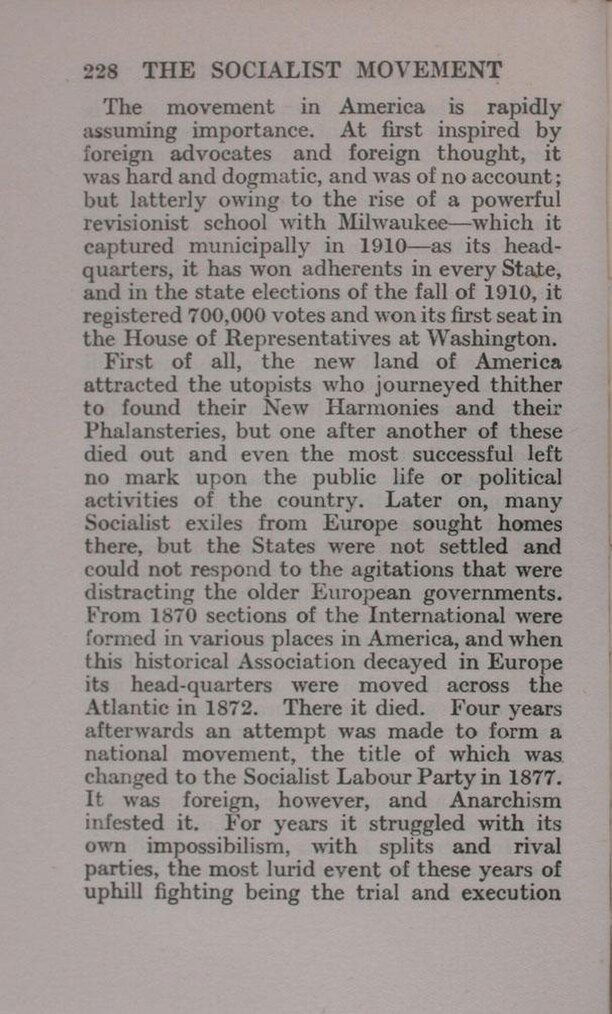The movement in America is rapidly assuming importance. At first inspired by foreign advocates and foreign thought, it was hard and dogmatic, and was of no account; but latterly owing to the rise of a powerful revisionist school with Milwaukee—which it captured municipally in 1910—as its head-quarters, it has won adherents in every State, and in the state elections of the fall of 1910, it registered 700,000 votes and won its first seat in the House of Representatives at Washington.
First of all, the new land of America attracted the utopists who journeyed thither to found their New Harmonies and their Phalansteries, but one after another of these died out and even the most successful left no mark upon the public life or political activities of the country. Later on, many Socialist exiles from Europe sought homes there, but the States were not settled and could not respond to the agitations that were distracting the older European governments. From 1870 sections of the International were formed in various places in America, and when this historical Association decayed in Europe its head-quarters were moved across the Atlantic in 1872. There it died. Four years afterwards an attempt was made to form a national movement, the title of which was changed to the Socialist Labour Party in 1877. It was foreign, however, and Anarchism infested it. For years it struggled with its own impossibilism, with splits and rival parties, the most lurid event of these years of uphill fighting being the trial and execution
